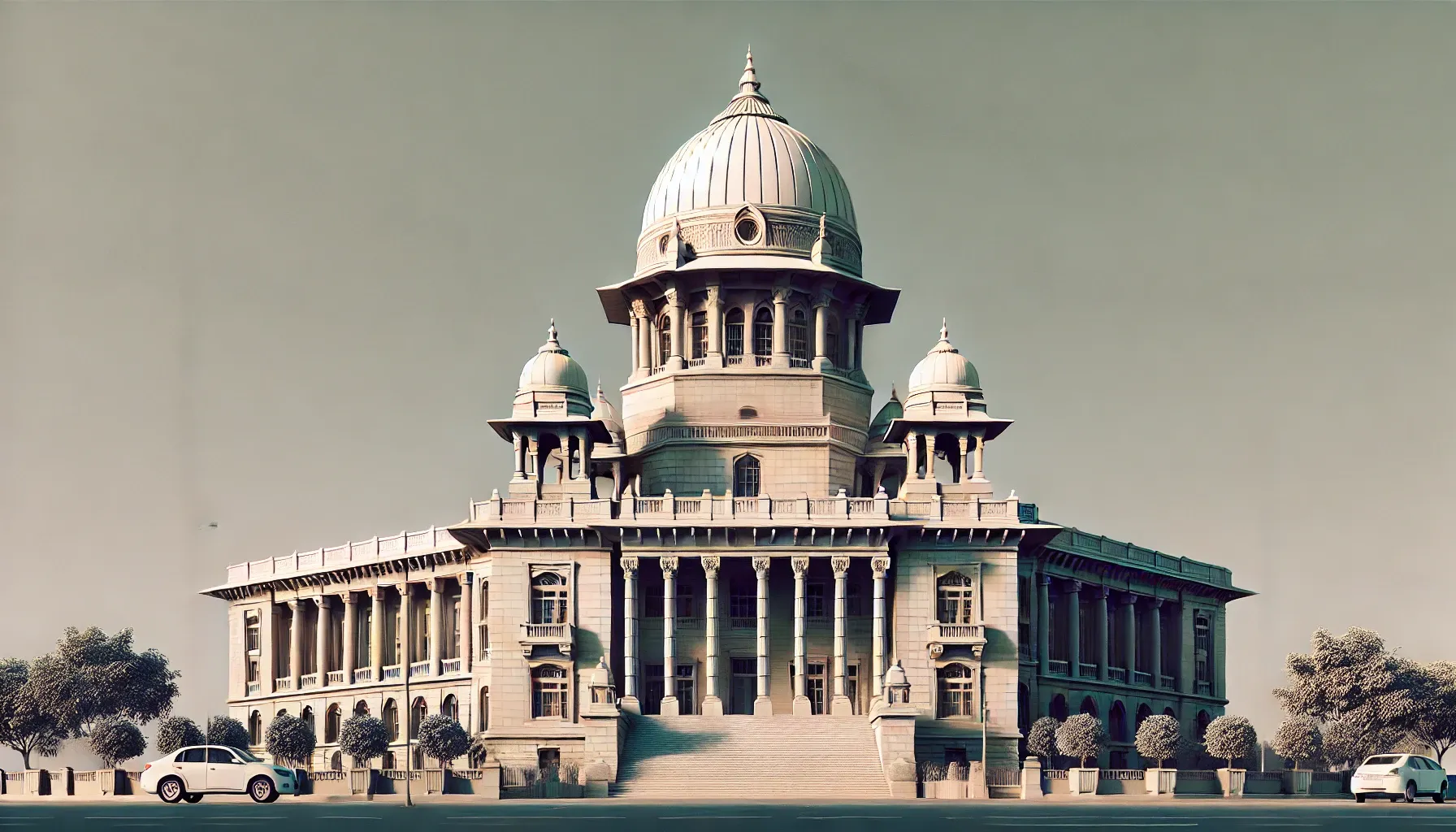The Delhi HC disposed of a plea challenging a 1988 import ban on The Satanic Verses, citing that the notification could not be located by authorities, presuming it nonexistent for further legal actions.

In a notable decision, the Delhi High Court has disposed of a petition challenging an import ban on Salman Rushdie’s controversial novel, The Satanic Verses, which had allegedly been prohibited by a government notification issued in 1988. The petition, filed by Sandipan Khan, questioned the notification's authenticity and legal validity, particularly given that neither the Central Board of Indirect Taxes and Customs (CBIC) nor any other authority could produce a copy of the document. This absence of evidence led the Court to conclude that it could no longer examine the validity of the notification, thus rendering the plea "infructuous."
High Court’s Decision Based on Absence of Notification
- A division bench, comprising Justice Rekha Palli and Justice Saurabh Banerjee, oversaw the case, which revolved around the non-availability of a notification purportedly issued by customs authorities under the Customs Act, 1962. The Court observed that, despite several years of attempts, no respondent agency could produce a copy of the notification, which allegedly prohibited the import of Rushdie's book.
- Concluding that the authorities’ inability to provide the notification indicated its potential nonexistence, the Court remarked: “In the light of the aforesaid circumstances, we have no other option except to presume that no such notification exists, and therefore, we cannot examine the validity thereof and dispose of the writ petition as infructuous.”
Background of the Petition: Importing The Satanic Verses
- Sandipan Khan filed the petition seeking formal permission to import The Satanic Verses either through direct publishers, international resellers, or digital e-commerce platforms, arguing that his freedom to access the book was being unduly restricted.
- Represented by Senior Advocate Uddyam Mukherjee, Khan's legal team contended that, despite the commonly held belief in a ban, the notification itself was neither accessible online nor physically traceable within government records. His counsel highlighted a 2017 RTI response in which officials reportedly confirmed the ban but were unable to locate the formal documentation necessary to uphold it.
Repeated Attempts to Locate the Notification Proved Unfruitful
- The petitioner’s legal counsel highlighted prior attempts to trace the notification, which included a 2022 ruling by a coordinate bench of the Delhi High Court. In that case, the authorities had similarly admitted their inability to locate the original document, citing that it was "untraceable."
- Despite multiple inquiries and submissions, none of the authorities involved in the current proceedings, including the CBIC and related customs officials, could provide the Court with a definitive copy of the 1988 notification.
- The absence of this critical document ultimately led the division bench to assume its nonexistence, concluding that any further examination of the notification’s validity was unnecessary.
Implications of the Ruling on the Import of The Satanic Verses
- By presuming that the notification does not exist, the Delhi High Court has opened avenues for Sandipan Khan and potentially others to legally import The Satanic Verses in accordance with established laws, effectively nullifying any alleged restriction.
- The judgment clarifies that, without a formal ban, Khan is legally entitled to pursue any lawful actions related to importing the book from foreign publishers or vendors.
Legal Arguments and Observations by the Court
- Senior Advocate Uddyam Mukherjee, appearing for Khan, argued that the notification, if it ever existed, should have been accessible through official government records, especially given its impact on public access to the book.
- Mukherjee emphasized that no verified copy could be found on government websites or in physical archives, creating ambiguity around the legality of any restrictions on the book’s importation.
- Furthermore, the petitioner’s counsel pointed out that the authorities’ inability to locate the notification could not serve as grounds to deny his client’s request, stressing that any legitimate restriction must be supported by formal documentation.
Respondent Authorities and Their Standpoints
- Counsel for the respondents, including Mr. Anurag Ojha (Senior Standing Counsel for CBIC) and Mr. Ravi Prakash (Central Government Standing Counsel), argued on behalf of the customs and indirect tax authorities. However, they acknowledged their inability to produce the notification, which they admitted was untraceable.
- The “purported author” of the original notification also reportedly expressed "helplessness" in retrieving a copy, indicating that no official documentation could verify the import restriction.
Outcome and Directions of the Court
- Disposing of the petition, the Delhi High Court noted that Khan would be “entitled to take all actions in respect of the book in question as available in law,” given the absence of any formal notification banning it.
- This decision effectively allows Khan and others to legally import The Satanic Verses, underscoring the need for concrete documentation to uphold any alleged prohibition on the book.
Counsel Representations
- Petitioner’s Counsel: Mr. Uddyam Mukherjee, Mr. Swapnil Pattanayak, Advocates
- Respondents’ Counsel: Mr. Anurag Ojha, Sr. Standing Counsel for CBIC, with Mr. Subham Kumar; Mr. Ravi Prakash, CGSC, Ms. Taha Yasin, Mr. Yasharth, Advocates.
Case Title: SANDIPAN KHAN v. THE CHAIRMAN, CENTRAL BOARD OF INDIRECT TAXES AND CUSTOMS AND ORS.
Attachment:





